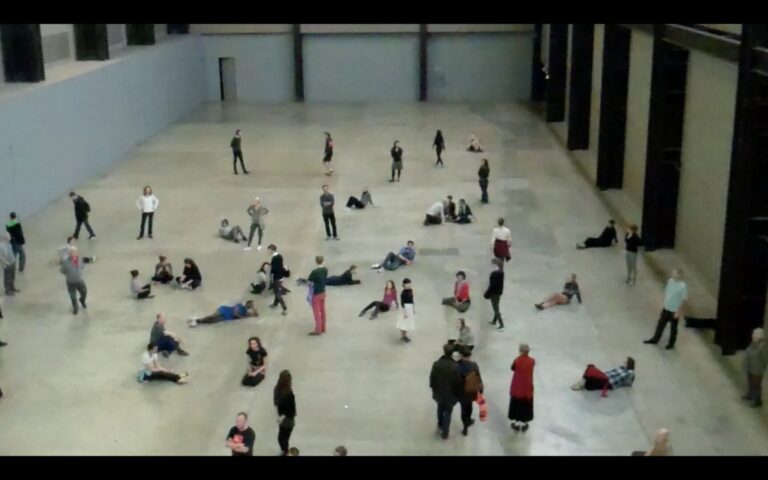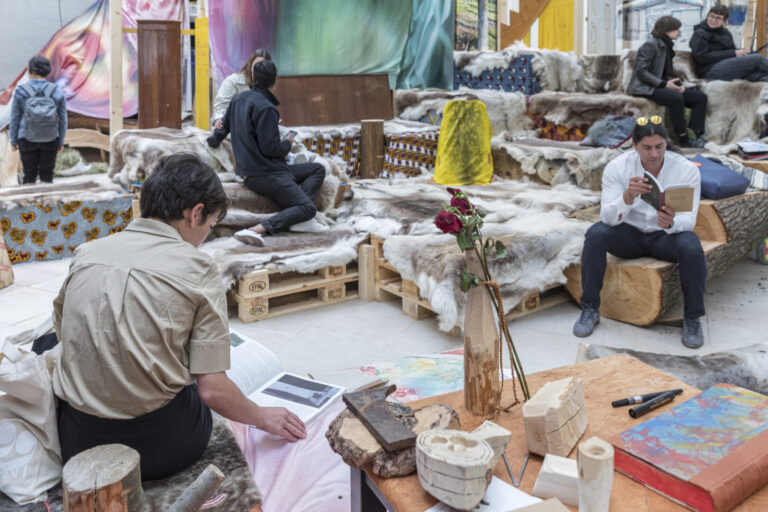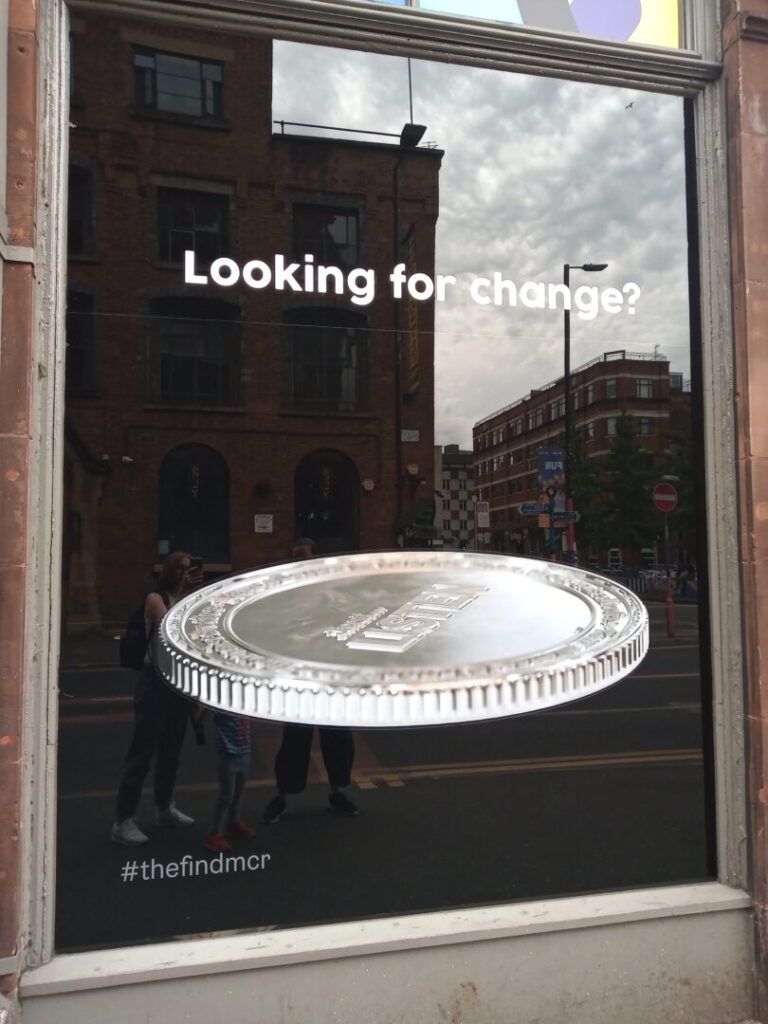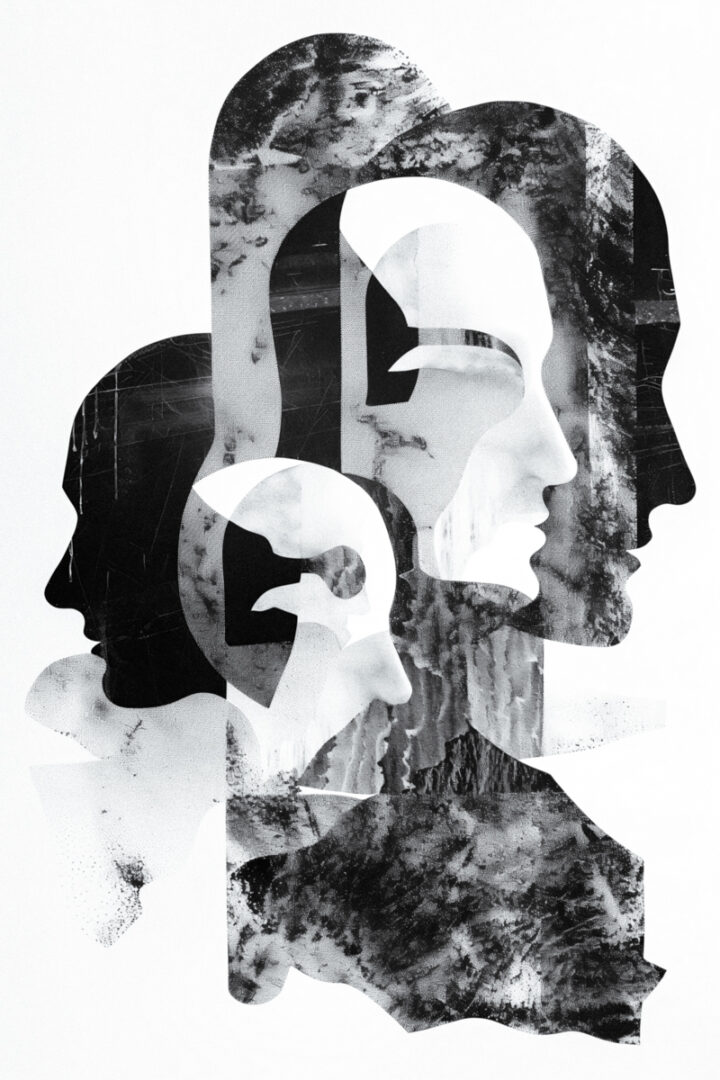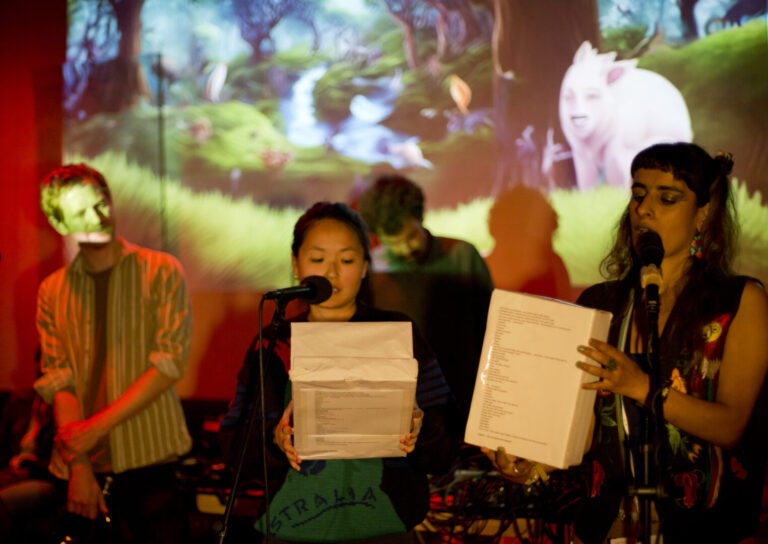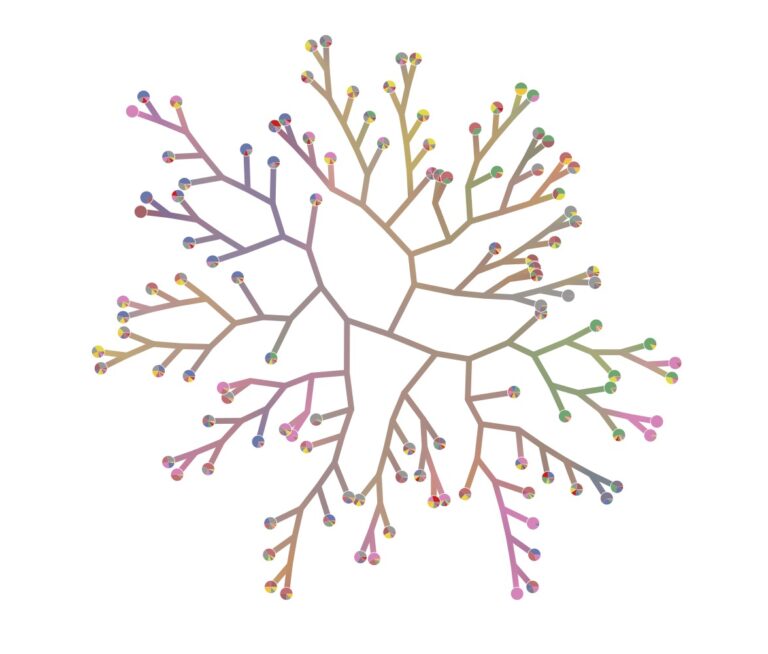The aim of this contribution is to explore some of the ways in which cultural studies, and more specifically affect studies and feminist new materialisms, have dealt with the problem of depression. My main argument is that, through these approaches and discussions, depression becomes a powerful site to delve into crucial controversies within affect theory and new materialisms, such as the distinction between affect and emotions and the related dichotomy between biology and culture, or the proper place of critique in contemporary thought. One glaring entry point to these controversies is the topic of antidepressants. In the 1990s, the so-called Decade of the Brain, a new generation of antidepressants took hold of the public imagination in the United States: the selective serotonin reuptake inhibitors, SSRIs, with Prozac (fluoxetine) on top. The 1990s also witnessed the emergence of both affect theory and new materialisms, and with them the shaping of some deep and enduring controversies. Indeed, almost twenty years later, these entangled debates were reenacted in two books: Ann Cvetkovich’s Depression: A Public Feeling (2012), originally prompted as a critical response to depression memoirs, and Elizabeth A. Wilson’s Gut Feminism (2015), strongly critical of what she considers to be the usual critique of antidepressants in cultural studies. Are antidepressants taking us closer to the true psychosomatic nature of bad feelings, or are they an insidious form of biopower? How should cultural studies, feminist, and queer work approach them? What do they say about depression and negative feelings in general? Are our feelings of distress mainly visceral and biological, or are they socially and culturally determined, or both? And how? How do the 1990s and 2010s controversies live on today?
Special Sections
Special sections published within or across issues.
The Spectre of Antisemitism
In this essay, I argue that the rhetoric behind “not in my name” actually mobilizes the same gesture as the popular Zionist move to innocence. While anti-Zionist Jews preface our solidarity with Palestine through an account of our own experience with suffering and persecution, so too does the Zionist Jew put that same suffering to use, albeit to opposite means. In other words, there is a fine line between the rhetorical purpose of anti-Zionists’ saying that genocide is not a Jewish value and Zionists’ using this same rhetoric to label Israeli violence as self-defense and not genocide. In fact, it is not a stretch to suggest that anti-Zionism’s re-emphasis on Jewish values as the means by which we validate Palestinian struggle is not a stand against Jewish supremacy but rather an appeal for it.
Marronage and its Aporias
In much proto-nationalist discourse and academic and historical work, marronage has come to represent an open receptacle of competing narratives and desires in the history of slavery, revolt, and Blackness. Paying attention to the ways marronage is portrayed across the different nations and territories of the Caribbean reveals grand narratives of heroism, the formerly enslaved outsmarting and outlasting planters and colonial officers in the hills and mountains of the West Indies and the swamplands of the US South. Through these narratives, this article argues, the maroons are mythologized both as figures of resistance against the racial terror of slavery and as the founding fathers of the post-Abolition, post-Independence Caribbean nation-state. These heroic yet limited depictions of marronage, though important in showing the ways the maroons were able to unsettle the plantocracy, fail to reckon with the impossibility of redress in the afterlives of slavery and the limits of sovereignty in the wake of the non-event of Emancipation. Marronage offers neither a clean break from slavery nor an easy path beyond, yet the proto-nationalist accounts of its praxis that I explore here insist on turning the incapacity of the enslaved into the capacity—to resist, to survive—of the heroic maroon. Through its calculated erasure of slavery, the marronage produced in these narratives generates its own set of aporias, pointing us in the direction of freedom but reminding us, at the same time, of its impossibility. What is at stake in this article is not an exploration of the future of marronage but the exploration of its past and its supposed break from slavery, as well as an interrogation of the ideals of Black resistance and Caribbean sovereignty and freedom that the heroic maroon is tasked with representing.
Introduction – Performance and Political Economy: Bodies, Politics, and Well-Being
In this article, Katerina Paramana introduces Lateral’s special section, “Political Economy and the Arts,” and its first set of articles, “Performance and Political Economy: Bodies, Politics, and Well-Being,” and provides the rationale and context for this section’s topic. In the face of a multiplicity of world-wide problems and suffering, this special section aims at a reinvestment in desire for change in order to resuscitate and reinvest in hope. The articles therein provide insights into the current relationship between politics, human and non-human bodies, and their well-being (and why it is necessary we take action to change it) which might help us steer the wheel before we drive off the cliff.
The Problems with the Critique of Political Economy in the Arts
This article attempts to offer a systemic discussion about the paradigm shift away from the neoliberal Washington consensus and its ramifications for the worlds of performing and visual arts. The article first provides an overview of discussions of political economy in the arts, in which the typically speculative arguments are contrasted with sociological and historical knowledge which reveals a limit to them. The article then describes contemporary political economy in the era of post-globalization and makes a few proposals on how the arts can think through it.
Racial Capitalism, Refugee Adjudication, and the Performances of Zama Zama
This essay investigates the category of the refugee as an instantiation of racial capitalism. To illustrate this conjunction, it first examines international law that defines refugees and, then, looks to specific national jurisprudence that accords different recognition to them. The national contexts discussed are the United States, given that the racial discourse there serves as a ground for the most widely known theorization of racial capitalism via Cedric Robinson’s book Black Marxism: The Making of the Black Radical Tradition, and South Africa, where racial capitalism was first coined. Robinson’s work is briefly elaborated in relation to subsequent scholarship that has engaged and extended the concept of racial capitalism, in relation to the particularities of South Africa racialization, and in relation to zama zamas (unregulated miners, often perceived as foreigners who threaten the Rainbow Nation’s stability in various ways). Given limitations of space, the essay uses the overview of juridical regimes and the excursus on Robinson to rethink the category of refugee. Zama zamas and the history of the South African mining sector as it informs understandings of race are posited as a fruitful direction for further research because these phenomena help to extend the entwinement of race and refugee and the implications of Robinson’s text for understanding refugees anew.
“A Currency of Happenstance”
Commissioned by Manchester International Festival, The Find (2023) was a participatory art project by conceptual artist Ryan Gander. It distributed non-monetary coin in public space to create what Gander termed “a currency of happenstance,” engaging chance procedures and choice. This essay discusses The Find’s participatory aesthetics and ethical claims, asking what its engagement with coin might elucidate regarding continuities and changes in cultural and economic life, and contemporary political struggles regarding money.
Young People’s Self-Making in Neoliberal Capitalism: Challenges and Opportunities
This paper charts the development of young people’s self-making in neoliberal capitalism, specifying relationships between their self-making and susceptibility to mental health difficulties as they make their way in neoliberal market society. While neoliberal capitalism provides young people with opportunities to pursue and experiment with diverse identities and ways of being in the world, it also structures their self-making opportunities, by which charting selfhood becomes fertile ground for internalizing mental health problems. Our paper argues that the cultural imperative on young people to attain social status and success in the competitive and achievement-oriented forms of life that inhabit neoliberal capitalism demands that they curate and commodify highly desirable forms of selfhood that can never quite be realized. Endlessly failing to satisfy the conditions of selfhood in neoliberal capitalism, exhausted by the injunction to be more than they have already achieved, young people are socialized into increasingly complex and pressurized neoliberal capitalist cultures which challenge their ability to fulfill both their extrinsic desires for status and identity enhancement and their intrinsic needs for relatedness, belongingness, and self-worth. To conclude our paper, we summarize our main arguments and make some recommendations for promoting a more beneficial relationship between young people and the culture of neoliberal capitalism.
How Vital is Nature? Animated Bodies and Agency in Contemporary Capitalism
This paper brings into conversation two ontologies that depart from the anthropocentric norm: new materialism, represented here by the US vitalist philosopher Jane Bennett, and the animated cosmology common among Indigenous peoples, as an example of which I take Braiding Sweetgrass by the Potawatomi bryologist Robin Wall Kimmerer. I provide exegeses of both philosophies, with respect in particular to the notion of “animation,” noting that the animated sphere is much more extensive for Bennett than for Kimmerer. I then track Bennett’s shift away from environmental ethics. Finally, I relate differences in philosophy to differences with regard to race and racism, with a detailed discussion of Bennett’s tribute to Walt Whitman, and the genocidal elements within his democratic politics.
Without Rethinking Colonialism and Racialization, a Sustainable Future is Not Possible
In this article, I talk about the performances of global capitalism, its relation to colonization and racialization, and the ways it hinders the well-being of vulnerable bodies. An understanding of the relation between post-colonialism and post-socialism is crucial to this discussion. I therefore start from a territory that is no longer conceivable today, namely former Eastern Europe and its post-socialism of 1990. I then proceed to discuss the relation of post-socialism to post-colonialism and capitalism. I conceptualize and discuss a diagram that illustrates the relations between the former East, the West, the North, and the South, and in particular, the relation between labour and capital and between capitalism and colonialism across these territories. I suggest that if we are to dismantle imperialism, that is, terminate capitalist colonialism, we need to rethink the racial/colonial divide and the imperial/colonial divide.
Conscious Delirium of a Traveling Body: The Poetics and Politics of a Creative Practice
The question of political economy in the arts offers a way into a creative-critical reflection on the challenges associated with navigating identity labels and living a freelance artist’s life pressured to conform to institutional expectations particularly within the UK’s art scene. This piece is a personal account of a body resisting becoming a symbol, of staying conscious of our socio-political landscape and the ongoing Israeli settler-colonialism. I draw on examples from three of my artworks: the collaborative project From the Lips to the Moon, ongoing nights of longform improvised music and poetry in London; In Observance, a performative research and intervention at the United Nations in Geneva, involving archival documents related to Palestine; and Mishandled Archive, which involves dispersing family photographs and documents in public places, accompanied by daily dances. Through these works, this essay asks: How can historical evidence of imperialism and settler-colonialism be absorbed or resisted within the body? How can we transform loss into movement and togetherness? How late is too late as mounds of rubble and bodies multiply?
Enlightenment by Any Other Name
This essay provides a cursory sketch of the circulation of science as a fetish object in critical theory—particularly by way of an attention to the conceptual popularity of science studies and various permutations of object oriented ontologies. It does so to identify how and under what terms scientific knowledge becomes a necessary site of interdisciplinary collaboration with the humanities, and challenges how these interdisciplinary trafficks disguise forms of epistemic priority ceded to the (hard) scientific method. Identifying in this movement a disavowal of racism in science’s conceptual repertoire and its ongoing claims to objective facticity, the essay criticizes contemporary recourse to science as the newest frontier in critical theoretical scholarship. In contrast to this, the essay poses a much more skeptical approach to the ethics and methods by which such projects develop and critically circulate.
1980—Neo-Marxism, Feminism, and Post-Colonialism at the Dawn of a New Decade of Cultural Studies
Tested against the global political struggles of feminist and anti-colonialist activists, cultural studies scholarship during the 1970s shifted from the subversion of humanist and empiricist dichotomies to the problematization of the limits and possibilities of postmodern critical knowledges themselves. Arguing for analyses that acknowledge the persistence of hierarchical systems and structures—such as neo-imperialism, and the persistent division of labor by sex—as social relations and subjectivities have become more individualized, fragmented, and unstable, we may recognize the year of 1980 as the symbolic moment cultural studies scholars would particularly problematize the categories, oppositions, and dichotomies on which conventional notions of race and sex rely. This article chronicles some of the key debates coming to a head over the course of the late 1970s which would prove fundamental to the development and continued importance of the cultural studies project over the course of the 1980s.
Introduction
This special section provides snapshots of the field of cultural studies, querying theoretical lapses, overlaps, and contentions between and within competing texts. In these short pieces, emerging scholars enter contemporary or historic academic debates to complicate the canon without a desire for resolution.
The Future Isn’t Now: Impossible Action in Political Scholarship
In a world of negation, it is exhilarating to imagine possibilities. Such is evident in the strain of critique that asserts there is something radically productive in opening up possibilities. This makes sense: critical theory seeks to illuminate something beyond endless torrents of death and destruction. But, this essay contends, the thrill of possibility-creation has created a new aporia: the affect gesture of possibility risks overshadowing the realization of radical possibilities. Various strains of scholarship presume that scholarly politics is a matter of perceiving and awakening possibilities. The impulse is most readily clear in utopianist scholarship like that of José Esteban Muñoz, but it’s also evident in work by Saidiya Hartman, Eve Kosofsky Sedgwick, and even Rita Felski. All these materials propose that cultural materials can coordinate possible worlds, and by extension, scholarship competency is to schematize them. But, I argue, the scholarship that follows these thinkers risks becoming trapped by possibility. It’s captivating to imagine new ways of being or living or knowing, but there exists neither the professional incentive nor the affective discipline to realize those possibilities. In our reverie at imagining the construction of a better world, our blueprints don’t necessarily reach the builder—and the indulgence of possibility risks sliding back into despair. This essay does not argue for dismissing the scholarship above, but rather suggests we haven’t read them well enough. Muñoz, Hartman, and Sedgwick are not drunk on hope; their openness to possibility comes from the mute agony of living in an unlivable world. Although a variety of material factors stand in the way of scholar-activism, this affective trap remains one of the most pressing—for if we do not recognize the feelings that structure political scholarship, we will only be playing a language game, projecting possibilities that could never come to fruition.



